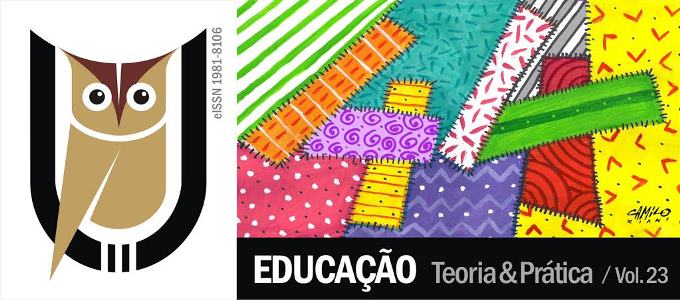A sensitization of memory by the means of philosophical tales in the training of educators
DOI:
https://doi.org/10.18675/1981-8106.vol23.n44.p95-111Keywords:
Philosophical Tales. Art-education. Interdisciplinary. Training of teachers. Hermeneutic Symbolic.Abstract
This article deals with a specific aspect of the research (Funding Capes 2011/2012/ 2013; FAPESP 2013) of dramatic play based on tales philosophical in the training of educators. In this paper we will stick to the issue of sensitization of the memory and body-memory (GROTOWSKI, 1993) of university students from course of Pedagogy, by means of the philosophical tales (CARRIÈRE, 2004, 2008; GRILLO, 1993; MACHADO, 2004; NAPOLITANO, 2011). For this paper we based for methodological by two transverse axes: 1) reading and study of philosophical tales; and 2) dialogue of the empirical research and the registers with the theoretical perspective relevant to the hermeneutic-phenomenological of myth-hermeneutic and the theater director Grotowski. The sensitization of the memory and the body-memory by the means philosophical tales is a resource for consolidates a process of teaching / learning quite significant that, far beyond the resources only theoretical, prepares for an “attentive listening” and practice more consistent with other educational possibilities alternatives when, are themselves, in the performance of their duties as educators.Downloads
Published
How to Cite
Issue
Section
License
Authors who publish in this journal agree to the following terms:
a) Authors assign copyright to the journal, with the work simultaneously licensed under the Creative Commons Attribution License that allows sharing of the work with acknowledgment of authorship and publication in this journal.
b) The policy adopted by the Editorial Committee is to assign copyright only after a period of 30 months from the date of publication of the article. After this time, authors interested in publishing the same text in another work must send a letter to the Editorial Committee requesting the release of the assignment of copyright and wait for a response.
c) This journal provides public access to all its content, since this allows greater visibility and reach of published articles and reviews. For more information on this approach, visit the Public Knowledge Project, a project that developed this system to improve the academic and public quality of research, by distributing OJS as well as other software to support the public access publication system to academic sources. The names and email addresses on this website will be used exclusively for the purposes of the journal and will not be available for other purposes. This journal provides open any other party  This work is licensed under a Creative Commons License
This work is licensed under a Creative Commons License











